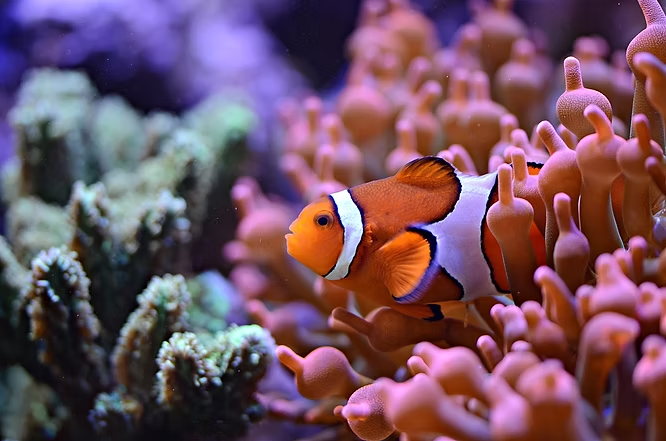Marine Life at Risk from Climate Change
A new study published in Nature Climate Change warns that nearly 90% of marine species could face high or critical risk by 2100 if the world continues along a high-emissions pathway. These risks would extend across 85% of species’ native ranges in the ocean, threatening the stability of marine ecosystems. “It’s a pretty bleak picture,” said Alex Pigot, a biodiversity expert at University College London. “We’re talking about enormous disruption to marine ecosystems.”
Unequal Global Impacts
The study highlights stark geographic disparities. Risks will be most severe in tropical regions, which depend heavily on marine resources yet have contributed the least to historic emissions. Meanwhile, species at higher latitudes are expected to face relatively fewer risks. Top predators like sharks are especially vulnerable, with cascading effects likely across the food web.
Pathways to Two Futures
The research assessed nearly 25,000 species under two scenarios: high emissions and a mitigation pathway consistent with the Paris Agreement. While unchecked emissions pose catastrophic threats, the study found that strong mitigation could reduce risk for over 98% of species. “The beneficial impact of following a high mitigation scenario is huge,” said Derek Tittensor, a marine ecologist at Dalhousie University.
Urgency and Solutions
Scientists stress that the world already has solutions: reducing emissions, transitioning to renewable energy, and implementing policies for steep reductions this decade. Another recent Nature study found that global warming could be limited to 2°C if all national pledges are fulfilled — but only with urgent action.
Managing and Protecting Oceans
The new study also introduces a climate vulnerability index that fisheries managers can use to adapt strategies for species-specific risks. In parallel, ongoing negotiations for a high-seas treaty aim to protect 30% of international waters by 2030 — a step experts say is crucial for safeguarding vulnerable species.
Hope in Action
Pigot emphasizes that the paper presents “two different worlds” by the end of the century. One leads to widespread ecological collapse; the other, if emissions are curbed immediately, offers hope for a healthier ocean. “We’re not at the point where we don’t have a choice,” he said. “We can still completely choose.”

